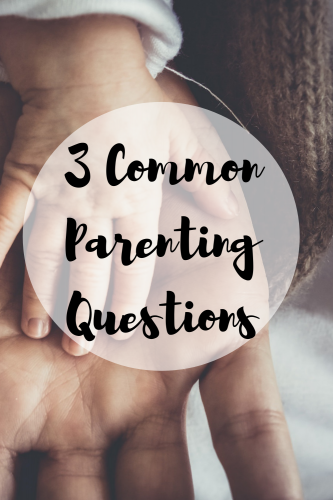
Being a new parent is hard – and everyone has an opinion about your parenting, which only adds to your stress. Even worse, the questions don’t stop once you get past infancy, but with the right information, you can make sense of the debates. These 3 issues are among the most common questions parents ask about parenting, from birth through early childhood. With the right information, you can make decisions about your child’s health with confidence.
Birth: The Importance Of Vitamin K
Right after birth, children receive a variety of blood tests to screen for congenital diseases. They also typically receive a few basic preventative treatments, including a vitamin K shot, but some parents choose to skip this injection, despite the medical recommendation.
So, what’s the rational for giving vitamin K immediately after birth? Vitamin K doesn’t cross the placenta, and it takes time for the body to start making its own. Giving a vitamin K injection can prevent dangerous bleeding, including bleeding into the intestines and the brain. Though most children won’t have any problems, such bleeding can be deadly, which is why doctors have been recommending postnatal vitamin K injections 1960s.
Birth To Early Childhood: Tissue Banking
For many years, there was a lot of chatter around banking infant cord blood. The idea: the stem cells in umbilical cord blood could be used to treat a child’s health problems down the line, or to treat another family member. The problem is that private banking is expensive and most families never use the cord blood, and ultimately there are better, more flexible options.
Rather than banking cord blood, there’s been a growing movement of parents banking their children’s baby teeth and, later, wisdom teeth. These teeth contain mesenchymal stem cells that can be used to treat a variety of conditions, include leukemia and lymphoma, diabetes, and multiple sclerosis. Parents also have many opportunities to make this decision, since children shed baby teeth for several years and wisdom teeth are typically extracted between the ages of 16 and 21.
The Early Months: Sleep Struggles
If you run a quick internet search, you’ll find dozens of books on sleep, highly paid sleep consultants, and an impossible amount of advice on helping your baby sleep through the night. The most significant divide, though, is between those who believe in ‘cry it out’-style sleep training and those whose sleep philosophy tends toward cluster feedings, co-sleeping, and attachment parenting. But the good news is that, unlike the vitamin K shot, this isn’t a life or death decision.
Sleep is a critically health issue, but the best thing you can do is find a sleep routine that lets you feel good. Sleep training requires a certain amount of perseverance and some parents can’t take the crying, but others think that developing a routine is worth it. Others would rather have more sleep interruptions with less crying, so you’ve got a lot of leeway here.
There’s No Spoiling A Baby
Almost any time a parent picks up a crying baby or admits to co-sleeping or cluster feeding, someone – often an older relative – will announce that you’re going to spoil the baby. Well, don’t worry about that. There’s no spoiling a baby. Infants don’t yet have the ability to self-soothe, and they rely on you to provide that comfort. As your child grows, you’ll teach them skills for independence, but for now, hold that baby as much as you want.





Leave a Reply